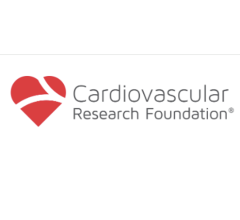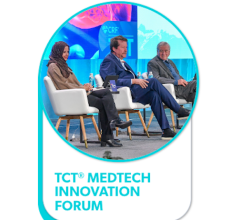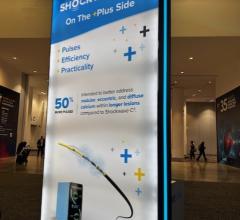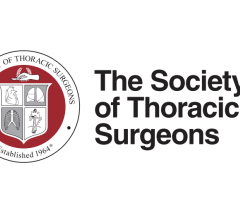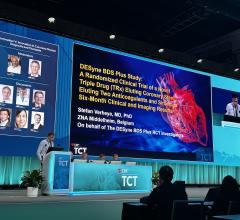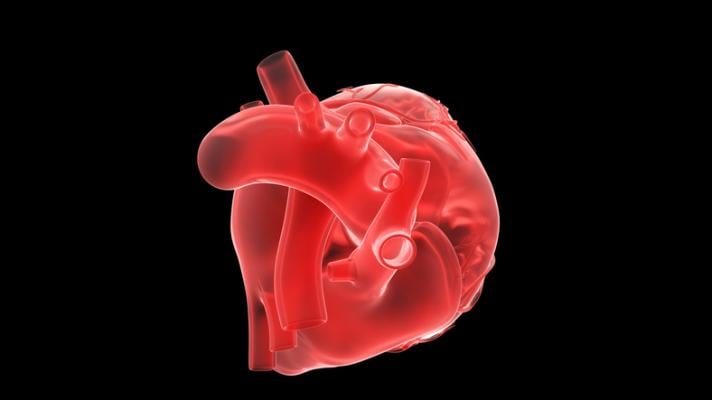
Getty Images
October 31, 2023 — Tenaya Therapeutics, Inc., a clinical-stage biotechnology company with a mission to discover, develop and deliver potentially curative therapies that address the underlying causes of heart disease, announced today that the U.S. Food and Drug Administration (FDA) has provided clearance of the company’s Investigational New Drug (IND) application to initiate clinical testing of TN-401.
TN-401 is Tenaya’s adeno-associated virus serotype 9 (AAV9)-based investigational gene therapy product candidate for the treatment of arrhythmogenic right ventricular cardiomyopathy (ARVC) caused by mutations in the plakophilin-2 (PKP2) gene. Based on this IND clearance, the company plans to initiate the RIDGE-1 Phase 1b clinical trial of TN-401, a multi-center, open-label study to assess the safety, tolerability and clinical efficacy of a one-time intravenous infusion of TN-401. Tenaya is currently conducting the RIDGE global non-interventional natural history and serotype study of PKP2-associated ARVC.
ARVC, also known as arrhythmogenic cardiomyopathy (ACM), is a chronic, progressive, familial disease that typically presents before age 40. People with ARVC experience symptoms related to ventricular arrhythmias, including palpitations, lightheadedness and fainting, and are at increased risk of sudden cardiac death. PKP2 mutations are the most common genetic cause of ARVC and result in a loss of key proteins needed to maintain the structural integrity and cell-to-cell signaling of heart muscle cells. TN-401 is designed to address the underlying cause of disease by delivering a fully functional PKP2 gene to restore normal PKP2 protein levels and thereby slow disease progression and reverse the course of disease after a single dose.
“People with arrhythmogenic cardiomyopathy report high levels of fear and stress and must withstand burdensome physical and lifestyle restrictions in an effort to manage the frequent abnormal heart rhythms and constant risk of sudden cardiac arrest associated with their disease,” said Whit Tingley, M.D., Ph.D., Tenaya’s Chief Medical Officer. “TN-401 is intended to address the genetic mutation most frequently underlying ARVC. The initial dose for TN-401 in the RIDGE-1 study was associated with near maximal efficacy in our preclinical studies. With clinical site and patient community engagement well underway, we look forward to rapidly advancing TN-401 into the clinic.”
In preclinical studies in a knock-out mouse model of disease, Tenaya’s PKP2 gene therapy administered at a dose of 3E13 vg/kg restored normal levels of PKP2 protein expression and demonstrated durable efficacy in preventing disease development and slowing or reversing disease progression after onset leading to long-term survival. AAV9 was selected as the vector for delivery of Tenaya’s PKP2 gene therapy based on its extensive clinical and commercial safety record in thousands of patients globally and its demonstrated ability in clinical studies to broadly distribute around the human heart and robustly express in heart muscle cells.
Tenaya has completed cGMP drug product manufacturing at the 1000-liter scale for TN-401 at the company’s Genetic Medicines Manufacturing Center, with sufficient drug product produced to support the entire Phase 1b study.
TN-401 RIDGE-1 Phase 1b Protocol
Tenaya’s RIDGE-1 Phase 1b clinical trial of TN-401 is a multi-center, open-label study to assess the safety, tolerability and clinical efficacy of a one-time intravenous infusion of TN-401. The RIDGE-1 clinical trial will seek to enroll up to fifteen adults who have been diagnosed with PKP2-associated ARVC. Trial participants must have an implantable cardioverter defibrillator (ICD) and be at increased risk for arrhythmias as determined during screening by premature ventricular contraction (PVC) count.
The trial will be conducted in two stages, with dose administration and outpatient assessments through 52-weeks and a long-term follow-up segment for four-years thereafter. Enrollment will be divided into two dose cohorts, starting at a dose of 3E13 vg/kg, a dose associated with near-maximal efficacy in preclinical studies. Following dosing of the first three patients, a panel of independent safety reviewers will advise on plans to dose escalate and expand enrollment of the initial cohort.
The trial protocol includes assessments of safety, markers of cardiac transduction and transgene expression in right ventricular biopsy samples, changes in PVC, sustained or non-sustained ventricular tachycardia (VT or NSVT) occurrences, circulating plasma biomarkers, imaging biomarkers of disease as measured by echocardiogram and patient-reported outcomes.
About PKP2-Associated ARVC
Plakophilin-2 (PKP2) mutations are the most common genetic cause of arrhythmogenic right ventricular cardiomyopathy (ARVC), estimated to represent approximately 40 percent of the overall ARVC population. The prevalence of PKP2-associated ARVC is estimated at more than 70,000 people in the U.S. alone, though it frequently goes undiagnosed as sudden cardiac death is the first sign of disease in nearly one quarter of known cases. In PKP2-associated ARVC, mutations of the PKP2 gene results in insufficient expression of a protein needed for the proper functioning of the desmosomal complex that maintains physical connections and electrical signaling between heart muscle cells. As the desmosome structure degrades, cardiac muscle cells are replaced by fibrofatty tissue and electrical pulses in the heart become unstable, resulting in adverse remodeling and irregular heart rhythms. ARVC symptoms include arrhythmias, palpitations, lightheadedness, dizziness and fainting. It is typically diagnosed before age 40, and sudden cardiac arrest due to life-threatening ventricular arrhythmias is frequently the first manifestation of disease. Current treatments include anti-arrhythmic medications, implantable cardioverter-defibrillators (ICDs) and ablation procedures, which do not address the underlying genetic cause of disease.
About TN-401 Gene Therapy and the RIDGE Clinical Program
TN-401 is an investigational adeno-associated virus serotype 9 (AAV9)-based gene therapy being developed for the treatment of ARVC due to disease causing variants in the PKP2 gene. AAV9 was selected as the vector for delivery of Tenaya’s PKP2 gene therapy based on its extensive clinical and commercial safety record and demonstrated ability to target heart muscle cells. In preclinical studies, Tenaya has shown that a single dose of TN-401 restored normal levels of PKP2, normalized heart rhythms, improved right and left ventricular size and function and extended survival. Tenaya has received clearance from the FDA to initiate its first-in-human RIDGE-1TM Phase 1b clinical trial of TN-401 in patients with PKP2-associated ARVC. To support TN-401’s clinical development, the company is currently enrolling the RIDGE global non-interventional study to collect natural history and AAV9 antibody (seroprevalence) data among PKP2 gene mutation carriers with ARVC. TN-401 has received Orphan Drug Designation from the FDA.
For more information: www.tenayatherapeutics.com

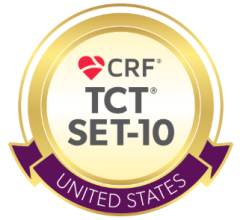
 October 31, 2025
October 31, 2025 

